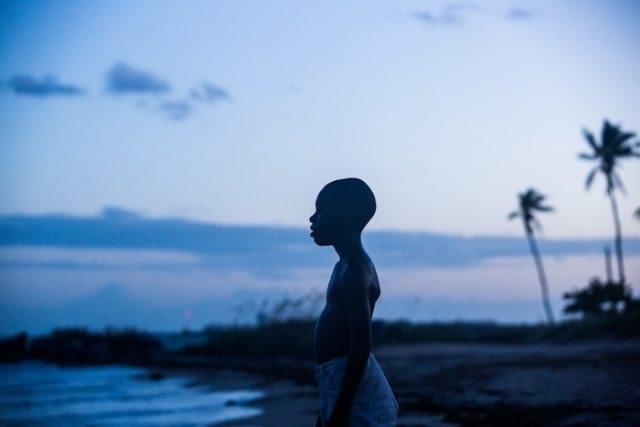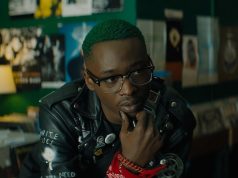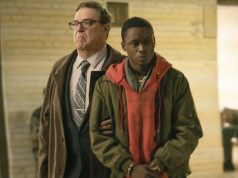
“Who is you?” That question, phrased in the vernacular of a demographic that is often scorned, ignored, or pitied, is asked more than once in “Moonlight,” a quiet, poignant movie about many things, including identity, race, sexuality, poverty, and masculinity. There are several movies’ worth of themes to consider in this single, deeply felt drama of elegant, heartbreaking simplicity, centered on a character trying to answer that question.
Written and directed by Barry Jenkins from an unproduced play by Tarell Alvin McCraney, “Moonlight” is told in three sections, each identified by the name our protagonist goes by at the time. His given name is Chiron (emphasis on the “shy”), but as a small, taciturn 9-year-old living in a drug-ridden Miami slum, he’s called Little (played by Alex Hibbert). His mother, Paula (Naomie Harris), is an actual crack whore; his father is not in the picture. His father figure becomes Juan (Mahershala Ali), the Cuban-born
man who also happens to be Paula’s drug supplier.
Livelihood aside, Juan isn’t a bad role model. He lives in a clean, comfortable home with his wife, Teresa (Janelle Monae), who becomes a surrogate mother for Little when Little’s own mom can’t (or won’t) take care of him. At school, Little is picked on for being soft. He wrestles and play-fights with his only friend, Kevin (Jaden Piner), to prove otherwise, in a scene of innocent, pre-sexual horseplay. Sitting at the kitchen table with Juan and Teresa, Little asks what a “faggot” is and wonders if he might be one.
At 16, Chiron goes by his real name (he’s played by Ashton Sanders now). He’s still withdrawn, a little spacey, and bullied for his slight queerness. He’s still friends with Kevin (now Jharrel Jerome), who boasts crassly of his own (straight) sexual encounters but is capable of tenderness.
In the third section of the film, several years later, Chiron is a young adult (Trevante Rhodes) and goes by Black, the nickname Kevin gave him in high school. Black has emulated the only role model he ever had, following in Juan’s footsteps in physical appearance as well as profession. When he hears from Kevin (Andre Holland) for the first time in years, all those old feelings come rushing back.
Jenkins, a 37-year-old Miami native with one feature under his belt (“Medicine for Melancholy,” 2009), scores several coups here, not least of which is finding three superb, mostly unknown actors to play Chiron. I don’t care that they don’t really look like the same person at different ages because they all feel like him, each one giving a delicate performance that seems to borrow from and influence the other two. The three Kevins also do fine work, especially the middle one, Jharrel Jerome, on whom it falls to handle the character’s most complex emotions. Mahershala Ali is only in the first section, but his conflicted righteousness and basic decency linger in the film the way they do in Chiron’s memory.
As teenagers, Chiron and Kevin have a beachside conversation charged with emotion and vulnerability, a conversation about emotion and vulnerability:
KEVIN: You cry, Chiron?
CHIRON: I cry so much sometimes I think one day I’m gone just turn into drops.
KEVIN: But then you could just roll out into the water, right? Roll out into the water like all these other muhf***ers out here tryna drown they sorrows.
CHIRON: Why you say that?
KEVIN: I’m just listenin’ to you, nigga. Sound like somethin’ you wanna do.
CHIRON: I wanna do a lotta things that don’t make sense.
I wanna do a lotta things that don’t make sense. The experience of being a poor, black, parentless, closeted gay teenager is highly specific, but as someone who was once a middle-class, white, well-parented, closeted gay teenager, my heart bursts with empathy at that line. There is a lifetime of subtext in it. I wanna do a lotta things that don’t make sense. If you have no idea how that feels, “Moonlight” will show you.
A (1 hr., 50 min.; )





